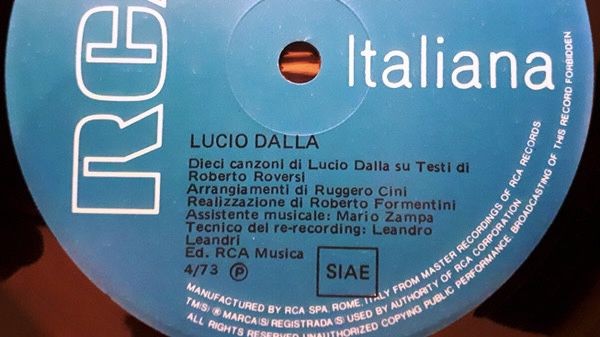Freedom is difficult and makes us suffer: the life of Roberto Roversi
Roberto Roversi is one of the liveliest intellectual spirits of 20th century Bologna.
Lucio Dalla, with whom Roversi collaborated in the three albums that were to determine the songwriter’s artistic growth, described him as an extraordinary man, in love with life and devoted to the sacred nature of the human figure, in all its forms.
Born on 28th January 1923 to a family originally from Pieve di Cento, in the countryside surrounding the metropolitan city of Bologna, Roversi witnessed the epoch-making changes sweeping through Italian society in the 1950s, the years of the economic boom and of reconstruction. He observed, especially, the abandoning of the fields and the end of rural civilization. He dedicated an important part of his poetry from the period to this theme.
His first compositions (the collections “Rime” and “Poesie”) date from his years at the Liceo Ginnasio Luigi Galvani, where he met Pier Paolo Pasolini, his senior by less than a year. Their friendship arose from debate, research and reciprocal exchanges that were to be consolidated in the post-war years.
He took part in the Second World War, first training with the Alpini della Monterosa in Germany. He then transferred to Piemonte and embraced the partisan Resistance.
Roversi’s commitment to the partisans was not limited to the war period – it aroused in him a sensibility that remained constant over the years. Roversi became a “civil poet”, and every expression of his cultural life from then onwards was political.
In 1948, he married Elena Marcone and together they founded the Libreria Antiquaria Palmaverde. This became a fundamental cultural and intellectual point of reference for Bologna, though it was always characterized by the discretion that Roversi consistently maintained. Each of its seats, from Via Rizzoli to Via Caduti di Cefalonia, Via Castiglione and Via de’ Poeti, was to be a “hole in the arcade”, in the words of the writer Stefano Benni.
Founded in 1955, with Pier Paolo Pasolini and Francesco Leonetti, the magazine “Officina” aimed to give concrete expression to inner unrest and to pursue literary research with a new analysis of the 20th century, redrawing the map in relation to what was officially accepted. With the subsequent magazine “Rendiconti” (created in 1961), Roversi dealt with new problems and languages, linked to politics and social contrast, once again in contradiction with the official line.
From the mid-1960s till the end of his life, Roversi never took part in presentations or public meetings, whether of his own works or those of others. He never published with the major book publishers, but disseminated his texts by self-production or by entrusting them to small, combative publishers.
The beginning of Roversi’s collaboration with Lucio Dalla was fundamental for the opening of new horizons to the songwriter’s creativity. Encouraged in this experimentation by the producer Renzo Cremonini, between 1972 and 1975 Dalla realized three albums with Roversi which compelled him to evolve his style and prepared him to become a complete songwriter. He demonstrated this with his debut as writer of his texts in the album “Com'è profondo il mare”, of 1977.
The three albums were “Il giorno aveva cinque teste”, “Anidride solforosa” and “Automobili”. The latter was partly censured. They were joined by unpublished works that appeared only posthumously in the collection “Nevica sulla mia mano” of 2013.
But it was above all for Gaetano Curreri and the Stadio that he was to continue, after the great success of “Chiedi chi erano i Beatles”, to write song texts. Songs with words by Dalla were recorded by Mina, Paola Turci, Claudio Lolli, Angela Baraldi, Francesco De Gregori and Fabrizio Moro.
It happened recently: I was in the car and by chance I heard “Millemiglia” on the radio, a song I did in 1976 with Roberto Roversi, the poet who marked a turning point in my professional life. I wept.
The meeting with Roversi was a sort of investiture. More than that; it was truly an astrochemical circumstance, in the sense that my love for this person so intolerable in his work methods – he made me madder than even my mother did when she didn’t allow me to go out in the evening – taught me things that can’t be taught.
By parthenogenesis, by osmosis, by pulling my pigtails from a distance with the blowgun, he made me understand things I’d never have understood whether at school or by myself or by going three times to Mount Sinai.
I understood above all how to organize the thought of a song, the word, the sign, the force and above all compassion for all those who are going to listen to your songs or read your books. The real compassion, love.
Love and compassion are the same thing. Emotional participation in a phrase you like, that you write and that you give to people when you sing it, when this happens you’ve hit the target, not so much at the market level, but on your own level, because you’ve become another, you are moved too.
Indeed, there are not a few cases in my history when, after finishing a text, I started to cry.
Lucio Dalla
Listen to the playlist

